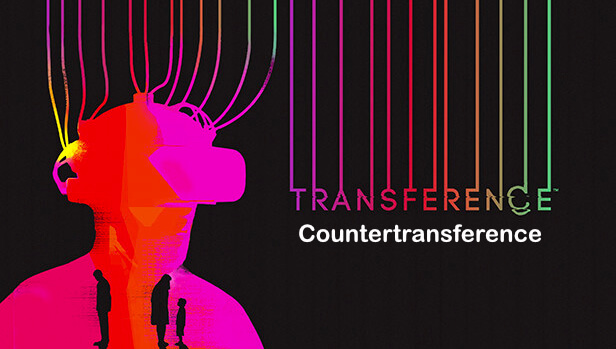Transference – Mental Health Issues in Congregation

Pr. Lijo George Fuller Theological Seminary CN721 Mental Health Issues in Congregation Dr. Chris Adams 10/23/22
Transference
"Transference" occurs when one person's emotions are projected onto another. During a therapy session, it means that patients are projecting their emotions onto the therapist rather than the original target[1]. It is impossible to discuss transference without mentioning countertransference. If a therapist is engaging in countertransference, they are projecting their own emotions onto the patient. In most cases, both transference and countertransference take place subconsciously.
There are two types of transference, namely, positive and negative transference. "positive transference" refers to when the therapist's client attributes good characteristics to the therapist instead of themselves. They may have a favourable impression of the therapy. Alternatively, "negative transference" refers to when the patient places blame for the therapy's failures on the therapist. One possible interpretation is that the therapist is antagonistic[2]. The therapist may also become the target of the patient's projections of their unresolved emotional issues.
Numerous forms of transference happen outside a therapy setting. Most of these transferences usually originate from childhood associations. For example, there is parental transference. This transference occurs when an individual substitutes their parents with someone else and begins exhibiting negative feelings against the substitute. Besides parental transference, there is sibling transference. These feelings are shared while working in a group or with someone who reminds an individual of a sibling. In this case, the person projects their sibling complex onto someone else because you regard them as a potential sibling. Lastly, there is a non-family transference[3]. Non-family transference is often seen in stereotypes. For example, the general public often assumes that law enforcement officials will do what is required of them. But they are still human, and some of them violate the law. Many people's negative law enforcement attitudes are directed at specific cops.
Pastoral Counselling
Pastoral counselling is a professional practice that incorporates both psychological and religious frameworks. When compared to other forms of treatment, it performs similarly. What sets them apart is their account of religion, spirituality, and theology matters. Many pastors and chaplains use spirituality in their counselling because they believe it helps their clients heal and develop. Pastoral counsellors assist individuals in transcending, changing, and connecting with others using means other than traditional psychotherapy[4]. The commonly used methods include prayer, scripture study, and involvement in the congregational community.
The commonly asked question is who might choose pastoral counselling. According to studies, 81 percent of those needing mental health care would rather work with a counsellor who shares their values and ideas. In comparison, 66 percent prefer to work with a professional who shares their religious or spiritual convictions[5]. The findings of this study shows why some individuals go to religious leaders or counsellors of a similar religion for support. Pastoral counselling may be helpful for individuals from various walks of life, especially if they seek psychological help or direction from a religious or spiritual standpoint.
Pastoral counselling has several advantages. For instance, the therapy's adaptability gives specific treatment to those needing it and fulfills more general counselling requirements. Pastoral counsellors are advanced in education and training, putting them in a rare position to provide both secular and religious clients with high-quality mental health care. In addition to helping those looking for marriage, premarital, family, or individual therapy, pastors may assist individuals seeking pastoral counselling[6]. It's important to remember that not everyone is qualified to provide spiritual guidance. Pastoral counsellors, licensed psychotherapists, are the only people qualified to give what some refer to as "pastoral psychotherapy." According to the American Association of Pastoral Counsellors, to qualify for certification as a pastoral counsellor, one must first complete the requisites set forth by one's religious community (typically ordination) and graduate-level education in theology and psychology (AAPC).
Christian Approach to Modern Psychopathologies
Psychologists, psychiatrists, pastors, preachers, philosophers, and theologians are fascinated by the mental illness among persons devoted to a religious cause. Many hypotheses attempt to account for the religious manifestations of mental illness. Different approaches to assisting persons with mental illness are developed in response to these notions. When ministering to Christians who are struggling emotionally or psychologically, difficult questions frequently emerge. They seek the pastor's counsel because these issues affect their faith and daily lives[7].
Religion and mental health may be seen from a few different angles, either as a way to better mental health, an obstacle to psychopathology, or a religion in and of itself. Spiritual wholeness necessitates psychological well-being. But it is wrong to associate such mental and physical conditions as "illegitimate diseases" with the idea of holiness[8]. Attempting to live a holy life does not mean risking one's mental or physical health. Some devout Christians see mental illness as a chance for enlightenment and transformation. A person's spiritual and physical well-being are directly related. Health (physical and psychological) and salvation are two separate yet interrelated processes. According to, "even the most seriously disabled individual is not wholly without capacity to engage in the salivatory process."[9]Those with mental illness are just as much a part of the human family as anybody else, and they share the same universal invitation to holiness and salvation.
Bibliography
Adams, Chris. “Transference in Pastoral Counseling.” YouTube. YouTube, October 17, 2022. https://www.youtube.com/watch?v=a09U4kLHJcw.
Rotman, Youval. "Moral psychopathology and mental health: Modern and ancient." History of Psychology 24, no. 1 (2021): 22.
Yarhouse, Mark A., Richard E. Butman, and Barrett W. McRay. Modern psychopathologies: A comprehensive Christian appraisal. InterVarsity Press, 2016.
[1] Chris Adams, “Transference in Pastoral Counseling,” YouTube (YouTube, October 17, 2022), https://www.youtube.com/watch?v=a09U4kLHJcw.
[2] Ibid 1
[3] Ibid 1
[4] Yarhouse, Mark A., Richard E. Butman, and Barrett W. McRay. Modern psychopathologies:
[5] Ibid 4
[6] Ibid 4
[7] Ibid 4
[8] Rotman, Youval. "Moral psychopathology and mental health: Modern and ancient." History of Psychology 24, no. 1 (2021): 22.
[9] Ibid 8
Instructional Content & Media
Transference in Pastoral Counseling https://youtu.be/a09U4kLHJcw Coping with Depression - Dr. Archibald Hart
Dealing with Anxiety - Dr. Archibald Hart
Coping with Depression - Dr. Archibald Hart
Dealing with Anxiety - Dr. Archibald Hart

